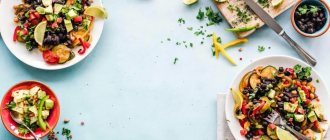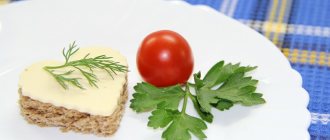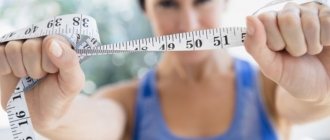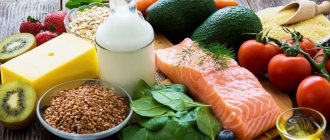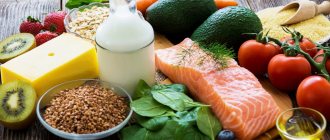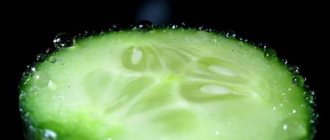What is fractional nutrition? Firstly, this is not snacking on the go or drinking tea at work. Secondly, this is not the endless consumption of fast food products in small portions. Third, this is not an excuse for late-night binge eating. And if you are assured otherwise, just show your interlocutor this article. Here and now we will try to understand what constitutes fractional scheme nutrition In fact. Moreover, we are ready to answer this question as much as possible. in detail.
What is it really?
A fractional meal plan is an alternative to the classic threesome “breakfast-lunch-dinner”, which involves increasing the frequency of meals while reducing the size of portions. This system involves avoiding snacking between meals, that is, excluding from the diet all kinds of coffee breaks, sweets, tea sandwiches and other sources of extra pounds. Instead of the classic three and an infinite number of snacks, the adherent of the fractional scheme is offered:
- eating food strictly by the clock (every day at the same time), with a frequency of 5-6 times a day;
- small volumes - ideally, a portion should fit into a handful or cupped palms;
- a minimum of salt and sugar - food should please with its natural taste, and not stimulate excessive appetite due to additives;
- healthy foods are included in the menu
- balance of serving components - proteins, fats and carbohydrates must correspond to each other in volume or weight.
This diet leads to normalization of stomach volume. He receives small portions, which are digested without residue, which eliminates flatulence, diarrhea, constipation and other manifestations of excess waste in the gastrointestinal tract. But the most important thing is the absence of hunger attacks. The fractional system teaches regular, portioned meals , and not the absorption of food out of boredom.
With this regimen, weight loss is a matter of time. And in this case, you will not need drugs for weight loss - the body itself will do all the work.
Should a woman go on a diet during her period?
During menstruation, the body retains water more than usual, so almost all women notice a weight gain of 1-2 kg in the period before menstruation and during menstruation. In addition, many suffer from the so-called PMS, the onset of which, in addition to bad mood, increased tearfulness and susceptibility to stress, is also characterized by attacks of brutal hunger. This is not just a strong appetite, but a desire to eat something spicy, smoked, salty or sweet - that is, all the most unhealthy things, the opposite of what is customary to eat on any diet.
This is why during and before menstruation it is so difficult to force yourself to go on a diet: the female body loses blood, and we also “offer” it a significant restriction in its usual diet. In addition, due to the body’s accumulation of excess fluid, the scale will show us how reluctant it is to part with the extra grams, which is certainly not the best motivation for those losing weight who want to lose weight as quickly as possible.
If you nevertheless decide to go on a diet during your period, but are worried that there will be no result, do not be discouraged: the body will certainly please you with a good plumb line, but not in the first days of the cycle, but after the critical days come to an end.
The mechanics of losing weight: why we eat five times a day, but still lose weight
Lose weight without dieting! At first glance, this statement looks like a dishonest advertising slogan. However, with a fractional scheme, losing weight is a matter of time, because there are three powerful players on our side:
- Strict regime - five times a day, and at the same time. With this approach, the stomach begins to work like clockwork, secreting digestive enzymes that dissolve a small portion without leaving a trace. In addition, this regime disciplines the brain, weaning it from the habit of eating for fun.
- Fixed frequency - the fractional principle assumes reception with a maximum of 4-hour frequency. With this scheme, the stomach and brain do not have time to get hungry, which means eliminating unplanned snacks.
- Limited volume - this principle involves absorbing no more than 200-300 grams of food at a time. The benefits in this case are more than obvious. A fixed portion means eliminating overeating and the formation of toxins in the intestines.
Add to this only healthy foods, with a reduced content of “net” calories and an increased presence of vitamins, amino acids, and minerals, and you will get the healthiest diet in the world. If you follow its principles , your body will begin to lose excess pounds from the second week. However, sometimes in order to lose significant weight you have to follow a fragmented diet plan for 3-4 months. After all, a person can lose his temper, choose a menu correct , with foods that are too high in calories, refuse to play sports, and make other mistakes that lead to the emergence of myths about the dubious effectiveness of such a diet.
How not to go off the diet?
So, the first thing that needs to be done long before entering the period of weight loss is to choose the diet that is within your power and will be correct for you personally. When choosing, be sure to consider a number of factors:
- general health. It is important that the nutritional system does not contradict the physiological status of a person. If, for example, you suffer from a disease of the digestive system, you definitely cannot do without prior consultation with your doctor and a good nutritionist. Otherwise, you can provoke a sharp exacerbation of the existing pathology and seriously harm yourself;
- individual tolerance of products. When choosing a diet, make sure that it includes those foods to which you do not have food allergies, and their use would not cause hostility. If the food system includes some component, and you are already allergic to it, choose another option;
- deadlines. If you are not a beginner and are not going on a diet for the first time, then you will probably be able to withstand a long period of dietary restrictions. However, when it comes to people resorting to this method of weight loss for the first time in their lives, the best option is to choose a diet that is not long-term. Limit yourself to a week and then breakdowns will be avoided. Of course, you won’t be able to lose five or more kilograms in a week, but if you manage to courageously “lose” at least two or three, this will already be a great achievement and motivation to continue further;
- reduction in caloric intake. You cannot reduce the caloric content of food sharply, as this is fraught with both physiological and mental problems. Reduce calories gradually: no more than 200, maximum 300. This way you will test your endurance, and if everything goes well, you can move on to more “severe” restrictions.
And of course, don’t set yourself tasks that you know you can’t complete. You shouldn’t “sit” on low-fat kefir for a whole week, as such manipulations often lead to breakdowns and a total lack of desire to lose weight in the future.
Mythical arguments against fragmentation of the diet
“Why do I eat and not lose weight?” - this is the main question of skeptics who oppose the fragmented menu . Agree, the very formulation of the question seems somewhat provocative. But there have already been many “scientific” justifications for it, convincing of zero benefit from such a diet. Here's what the skeptics say:
- Eating often does not mean losing weight. Human metabolism cannot be accelerated artificially. If you want to lose weight , get ready for prolonged hunger strikes.
- Small portions are harmful - under such conditions it is very difficult to calculate the balance of proteins, carbohydrates and fats. The result of the imbalance will be the accumulation of adipose tissue, due to a bias towards carbohydrates or fats, and loss of muscle mass ( insulin resistance and gluconeogenesis have not been canceled).
- Not everyone has time for snacks every 4 hours - no employer will like this diet. There is no benefit .
In fact, laboratory experiments prove that it is possible to speed up metabolism by 20%. And the problem of BJU balance is solved by eating according to a strict menu , which includes dishes with the same amount of proteins, fats and carbohydrates. The situation over time is generally far-fetched. With the full approval of coffee breaks by any company, this argument looks ridiculous. However, this does not mean that crushed breakfast-lunch-dinners do not have a dark side. It’s just that the main pros and cons of such a menu look completely different.
What to do if you really want sweets while on a diet?
In almost all diets, sweets are contraindicated for those losing weight, so lovers of chocolates and cakes have a hard time. If you belong to the category of those who cannot do without sugar-containing products for a long time, do not choose strict diets with a menu clearly defined by days and hours.
If your diet involves making adjustments to your diet, and you really want something sweet, dried fruits will help, choose the ones you love. And although many dried fruits have a fairly high calorie content (for example, dates), only 4-5 fruits are enough to slightly “discourage” the desire for sweets. In addition, if you really can’t bear it, then with a not too strict diet you can afford the following delicacies in small quantities:
- marshmallows, marshmallows, marmalade;
- jelly;
- honey;
- bitter chocolate;
- maple syrup (very tasty with baked apples).
If your diet is still strict and does not include eating sweets at all, then if you have an irresistible desire to eat something sweet, just brush your teeth - this will slightly reduce the craving for desserts.
Real arguments for and against
- The more often we eat, the more money our dentist earns. This harm from crushed breakfasts, lunches and dinners is difficult to dispute. With frequent use, even heavy-duty prostheses wear out quickly. But a reasonable person should understand that it is better to pay a dentist than a cardiologist.
- Losing the feeling of hunger (it does not occur with a 4-hour break between feedings) means losing control over yourself, risking sliding into a cycle of gluttony. A person does not feel full, so he will begin to increase the portion size. The main counterargument to this statement is the suggestion to weigh the portion before eating.
- Frequent snacking leads to an increase in endotoxins, as occurs before septic shock. In fact, such an increase does not mean anything dangerous. Yes, it is harmful , but not so much as to cause septic shock. After all, a surge of endotoxins does not cause the decomposition of body tissues, but only a skew of the menu towards sweets and starchy foods, against the backdrop of problems with insulin resistance .
- The crushed regimen is the shortest path to diabetes, because after each feeding there is a surge in insulin, which is very harmful to health. But only if there are already existing problems with insulin resistance . Therefore, diabetics travel 2-3 times a day, and people without problems with insulin - as much as they want, and without any harm to health.
- Snacking disrupts the circadian clock, leading to insomnia. But only when overeating at night, which is harmful in itself. If you build the right nutrition plan, you will sleep like a baby.
What happens when there is a sudden change in diet?
Since during the diet you are allowed to consume only certain dishes and products, a ban on the food that a person loves most can provoke significant psychological discomfort. As a result, those losing weight feel irritability and even attacks of aggression. In such a situation, it is very difficult to get rid of thoughts about food and the desire to snack on something nourishing and tasty.
General well-being also changes. A person may experience a painful feeling of hunger that makes it difficult to concentrate on anything else. These sensations can lead to poor performance and even sleep disturbances. There may also be discomfort associated with indigestion, which often occurs with a sudden change in diet.
However, unpleasant physiological sensations, as a rule, disappear after a few days, when the body adapts to the new nutritional system. For many, it is much more difficult to overcome psychological discomfort. After all, even relatively easy diets for beginners to lose weight change a lot in their usual life.
How to switch to fractional meals - where to start and where to move next
Even if you have weighed all the arguments for and against, recognizing the correctness of the supporters of the fragmented regime, do not rush to plunge into this diet headlong. to switch to any new diet without fanaticism and unnecessary fuss. help very soon . And if you expect to lose weight by the summer, and not get an appointment with a gastroenterologist, you should adhere to the rule of three weeks, during which you will switch to new portions and frequency of meals.
First week
During the first seven days, you should stabilize the frequency of main meals - learn to have breakfast, lunch and dinner at the same time. At the same time, you should calculate the calorie content of the daily and one-time intake. If you're used to eating 3,000 calories a day, break it down into three servings of 1,000 calories each.
After this, give up fried foods, processed foods, soda, sausages, sausages and sugar. in the correct diet. In addition, acquire healthy habits - start walking 30 minutes a day and increase your daily dose of fluid to 1.5 liters.
Second week
Start this week by reducing your daily caloric intake by 200 units. If you do not practice lunches and afternoon snacks, include one intermediate snack in your daily regimen, dividing the calorie content into four equal parts. Make it a rule to count the balance of BZHU for each serving. Try to create a new menu taking into account the balance of proteins, fats, and carbohydrates.
Add to the half-hour walks the avoidance of the elevator. If you live on the sixth floor or higher, call the elevator on the fifth. Complete the transition from harmful processed foods and fast food to healthy products. Start drinking two liters of water a day - it will help flush out toxins from the gastrointestinal tract.
Third week
At this point, you need to switch to a lower calorie diet, so remove another 300 calories from your daily diet. Introduce a new rule of meal frequency - breakfast, lunch, lunch, afternoon snack, dinner. Divide your daily calorie intake into five equal portions. Make it a habit to weigh your portion before eating.
In addition to walking and avoiding the elevator, add 15 minutes of morning exercise. Physical activity is the best way to help your diet. Balance your fluid intake - you should take 30 ml for every kilogram of your body weight.
Further diet
Where to go next? To answer this question, you must understand the goals of the diet. If you are trying to lose weight , reduce your daily caloric intake by 300 units each week until you reach 1200/1500 calories (for women/men). If your goal is to stabilize your existing physical shape, stop at a daily caloric intake of 1500/1800 units. Moreover, the volume of one serving in any case cannot be more than 300 grams.
How to stay on your diet: motivation
Indicate your main goal or motivation for losing weight clearly and clearly. By the way, it is best if there are several such “motivations” (they are also called the benefits of weight loss). In order to realize them, arrange a little “brainstorming” for yourself a day before the first day of the diet or in the first days, when abstaining from the usual food is most difficult for a person.
Take a small notepad and write down, point by point, several answers to the age-old question: “Why do I want to lose weight?” or “What benefits will losing weight give me in my life?” The answers may be different, depending on your desires or imagination, for example:
- I want to “fit” into size 44 jeans so that they fit me perfectly;
- I want to feel more confident with people of the opposite sex;
- I want to find myself a new and worthy partner;
- I wish to improve my health;
- I want to change my wardrobe and style;
- I want to get used to tasty, but healthy and wholesome food.
Use the old methods that almost everyone who loses weight resorts to: hang a funny reminder on the refrigerator like “Eating a lot is prohibited!” or set yourself an example of a slender and graceful work colleague, periodically thinking: “Why am I worse than her? I will definitely succeed!”
Buy yourself a beautiful dress a size or one and a half smaller than you are now. It will definitely become one of the leading motivations for not breaking the diet and bringing the matter to a victorious end. Remember: when buying, the main thing is not to overdo it with the size and realistically assess your strength and constitution.
Recommendations for beginners
You must understand what you are doing with your diet and why. Even if you are losing weight for health, do not reduce your daily portion below 1200-1500 calories, and if you go to the gym, you will need 2000 calories per day. Otherwise, your body begins to draw energy from muscle mass.
If you have trouble calculating calories and preparing a menu, seek help from a nutritionist. Otherwise, you will get not only dystrophy, but also vitamin deficiency. Treating these disorders will be costly.
Don't expect to have to sew your mouth shut to lose weight. You will have to make a physical activity plan. Without a gym, no diet gives the desired effect.
When can you go on a diet after childbirth?
It is not recommended to strictly limit yourself in nutrition immediately after the birth of a child: the body is already very weakened, and besides, it puts enormous effort into producing milk for the newborn baby. During the month when postpartum discharge (lochia) occurs, following a strict diet is unsafe both for women’s health and for the development of the baby if the mother is breastfeeding.
After childbirth, the weight will go away quite quickly: the body will get rid of excess fluid, all processes will return to normal and stabilize, and fat deposits will be burned more intensively if the woman begins to breastfeed the baby on demand. It has been proven that milk production causes the body to burn calories much faster.
And yet, it is quite possible for a nursing mother to lose weight through a diet without harming the health and development of the child.
Start of the diet
What is the best way to start losing weight so that on the second day you don’t overeat forbidden delicacies and hate yourself for being weak-willed?
- A series of holidays are not the best days to follow a diet. Guests, a feast, it’s inconvenient to refuse a treat... However, just like a vacation. Choose an ordinary period in your life, which is characterized by routine, and the upcoming celebrations will not be soon.
- As for the day of the week, it is better to start a diet on Monday - it’s so convenient to count the weeks and tie the result to them. And morally it’s easier.
- Remove all unhealthy foods from the refrigerator so they don't tempt you.
- Ask your family not to crunch on chips in front of the TV in the evening and not to invite them to a karaoke bar, where it will be difficult to refuse a glass of beer.
- Reward yourself for a day without a breakdown. Believe me: a slice of chocolate and a piece of your favorite bacon will not make you fat if all other principles are followed.
The most difficult thing during a diet is not even the feeling of hunger, which can be drowned out by the same motivators. The side effects of fasting are more difficult to deal with. For example, what should you do if your stomach has been twisting or you have a headache for several hours in a row? First, eat something - nibble on a carrot or enjoy a handful of nuts. Secondly, take a pill. If the symptoms recur the next day, you need to interrupt (temporarily!) the diet and undergo a medical examination so as not to harm your health.
Interesting fact. The fear of gaining excess weight has its own name - obesophobia.
The “what the hell” effect: why wine doesn’t help
The 40-year-old took out his PDA before ordering a Guinness from the bartender. “First beer, 21:04.” A few kilometers away, a young woman arrived at a student dormitory. After 10 minutes, she wrote down on her handheld: “One shot of vodka.” The party has just begun!
These drinkers were participating in psychological addiction research from the State University of New York and the University of Pittsburgh. The sample included 144 people aged from 18 to 50 years. People used handheld computers to record how much they drank. Every day at eight in the morning they reported their experiences after the evening libation. Scientists were interested in what happens when a person drinks more than he intended.
As you would expect, those who drank heavily the previous night were worse in the morning: they had a headache, nausea, and felt exhausted. But their suffering was not limited to a hangover. Many felt shame and guilt. This is where things started to get weird. The more a person blamed himself for how much he drank the previous night, the more he drank that night and the next. Guilt drove people back to the bottle.
Let me introduce you to one of the world's greatest threats to willpower - the "what the hell" effect . It was discovered by University of Toronto researchers Janet Polivy and Peter Herman while studying how people diet. The “what the hell” effect consists of a cycle of indulgence, regret, and more indulgence.
Scientists have noticed that many people who are losing weight reproach themselves for every failure - for a piece of pizza or cake. (Which foods do you regret the most? According to a 2009 study, the biggest contributors to guilt are: 1) candy and ice cream; 2) potato chips; 3) cakes; 4) pies and 5) food from fast food restaurants .) Having made concessions, they believe that the entire diet is going to hell. And instead of minimizing the damage and not overeating, they say: “What the hell, I’ve already broken my diet, I can eat everything.”
It’s not just junk food that causes the “what the hell” effect in those losing weight . Any failure can lead to this vicious circle. In one not-so-honest study, Polivy and Herman adjusted the scales to make people losing weight think they had gained a few pounds. People became sad, guilty, disappointed in themselves - but instead of gritting their teeth and losing weight further, they immediately began to console themselves with delicacies.
It's not just dieters who are susceptible to the "what the hell" effect. The cycle can start in any test of will. It has been observed in smokers and alcoholics who are trying to quit, and in buyers who are trying to stick to a budget. Whatever the test of will, the principle is the same. When you give in to temptation, you become sad and look for something that will lift your spirits . What is the easiest and fastest way to cheer up? Often it’s the one that makes you feel bad.
What is important is that it is not the very fact of the first concession that leads to a major breakdown, but rather the feelings of guilt, shame, hopelessness, and loss of control that follow it . When you get stuck in this cycle, you feel like there is no way out, only indulgences are possible. This leads to more failures of willpower, more suffering as you berate yourself (again) for giving in. What you turn to for comfort will not stop the cycle because it will only make you feel more guilty.
First steps
In the very first days of the diet, you can try to “deceive” the body by drinking water if you want to eat something. To do this, you need to put glasses or bottles of water in the refrigerator. And every time your hand reaches for it, don’t snack on something, but just drink water. After all, the body very often confuses thirst and hunger.
If you have an indomitable desire to eat, you can allow yourself to snack on something. This could be lettuce, spinach or arugula, carrots, apple or orange. The main thing is not to force your body, so as not to give up the diet later.
Those who have already had a bad experience of switching to a diet need to take into account all the mistakes of the past. The state of human health is also important. If he has chronic diseases, problems with the digestive system, or allergic manifestations occur, he should definitely consult a doctor before starting a diet.
